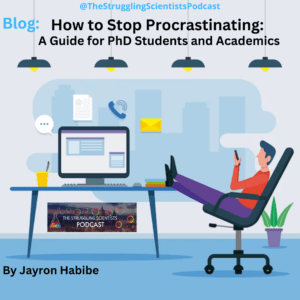Powered by RedCircle
We recently came across this paper by the group by Quon et al titled “Musical components important for the Mozart K448 effect in epilepsy” which was published in Nature scientific reports. https://www.nature.com/articles/s41598-021-95922-7
Of course, we have all heard about the old wives’ tale of playing classical music for your kids either still in the womb or outside so that they will get smarter but we had no idea until we came across this paper that research was being conducted into it.
While the paper discussed here is not on boosting intelligence it does focus on improving brain function at least for people with refractory epilepsy.
The background you need to know
Epilepsy is a neurological disease that impacts the lives of 1% of the total global population with about a third of all epilepsy patients having what is known as refractory epilepsy which means they unlike the other two-thirds of epilepsy patients don’t respond to medication.
People suffering from epilepsy are best recognized by the occurrence of seizures. Another characteristic of epilepsy is that people who suffer from it often experience Interictal Epileptiform Discharges or IEDs for short and these are a short firing of neurons that are commonly involved with epileptic networks.
These IEDs are well-accepted markers of epilepsy and associate strongly with the frequency of seizures but also with worsened cognition. Therefore, more and more research has been focused on IED improving treatments to try and remedy the situation for people with epilepsy. In specific, a lot of focus has been dedicated to using non-invasive IED therapies that may also work on refractory epilepsy patients.
This includes the use of Mozart’s Sonata for Two Pianos in D Major (K448) which had previously been shown to reduce IEDs in various studies.
The so-called “Mozart effect” refers to the effect that the K448 sonata has in reducing IEDs in people with epilepsy and has been studied since the 90s.
The reason the Mozart effect is so interesting is that except for one another sonata by Mozart namely Mozart’s Piano Sonata in C Major (K545) no other musical composition or auditory stimuli has ever demonstrated a beneficial effect in reducing IEDs.
The results
In this paper, they looked at 16 refractory epilepsy patients who were undergoing clinical monitoring and had electrodes implanted into the left and right brain hemispheres then tested how much time did subjects need to listen to K448 to see a beneficial effect.
They compared 2 groups of subjects, group 1 received only a 15-second interval of K448 while group 2 received 90 seconds but split over 15-second intervals.
They saw that group 2 showed significant beneficial improvement in IEDs and they noted that from 30 seconds and up they observed a beneficial effect.
They also compared K448 with variations of it as well as other auditory stimuli such as Wagner’s Lohengrin (Prelude to act 1) or the subject’s own preferred music. However, they only saw a beneficial reduction in IEDs for the original version of K448.
Through the use of the implanted intracranial electrodes, the researchers could also evaluate the region of the brain most affected by K448. In their own words “K448 preferentially reduced IEDs in bilateral frontal regions” or (the right frontal cortex).
Lastly, the researchers performed an acoustic analysis of K448 to determine the nested structural components of the sonata, and upon analyzing these nested segments they observed an association between frontal theta activity and transitions from longer segments of the composition.
My peer reviewer thoughts
This paper does an amazing job at building on previous work regarding K448 and is the first to demonstrate the duration-dependent effect of K448 in such a unique cohort.
They also show which region(s) of the brain are impacted by K448 and specifically highlight the theta activity in the region to be affected.
Obviously, this is important information for the field but also for people who suffer from epilepsy and bring us one step closer to a non-invasive treatment for refractory epilepsy.
In their discussion, they spend a lot of time trying to emphasize their perspective that because the theta activity is affected that it must mean that the subjects’ emotional networks are affected as well. What is interesting to me is that the subject’s emotional networks would be affected by K448 but not by their preferred music or song which they also evaluated in this paper.
You would assume that someone’s preferred music would elicit some emotional response from them as well so with this point that was raised in the discussion we could probably debate over.
I think it has now been scientifically proven that Mozart is the best composer ever!… Just kidding of course but it is very interesting that so far only 2 of his works show some clear neurological response in people with epilepsy.
While still more research will need to be conducted into this it does seem very promising as a non-invasive and non-pharmaceutical treatment option for anyone who suffers from epilepsy.
At least that’s the hope since in this study they only evaluated people with the medication-resistant form of epilepsy but presumably, K448 would also work on the other two-thirds of the epilepsy patients.
It never ceases to amaze me what the impact of music is on the human brain and I for one cannot wait for a Nature paper describing the beneficial effects of music from Dr. Dre or Snoop Dogg on some neurological disease in the future.
Also shoutout to whichever one of the participants in the Mozart study listed their favorite music as Judas priest!
Whoever you are, ROCK ON!









